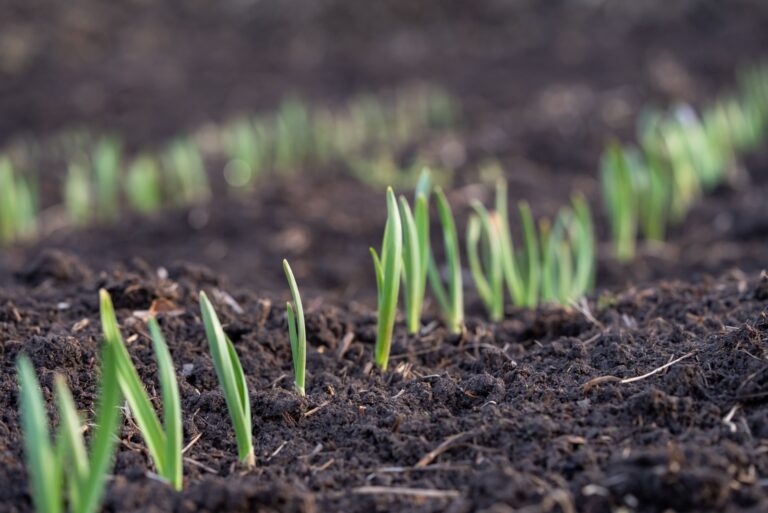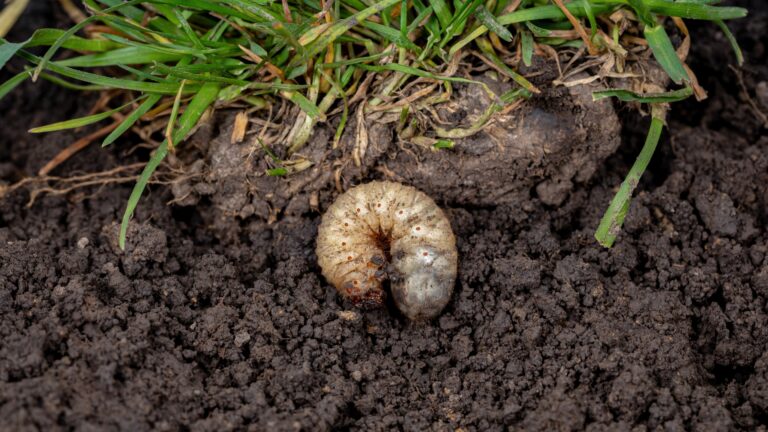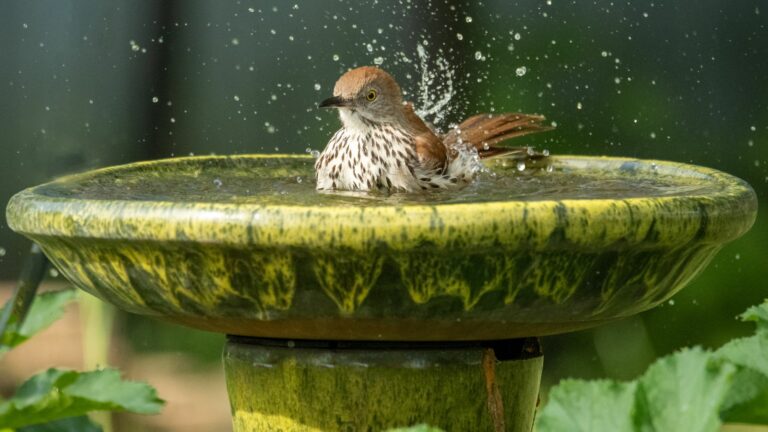17 Cheap And Easy Tricks To Keep Rabbits From Wrecking Your Garden
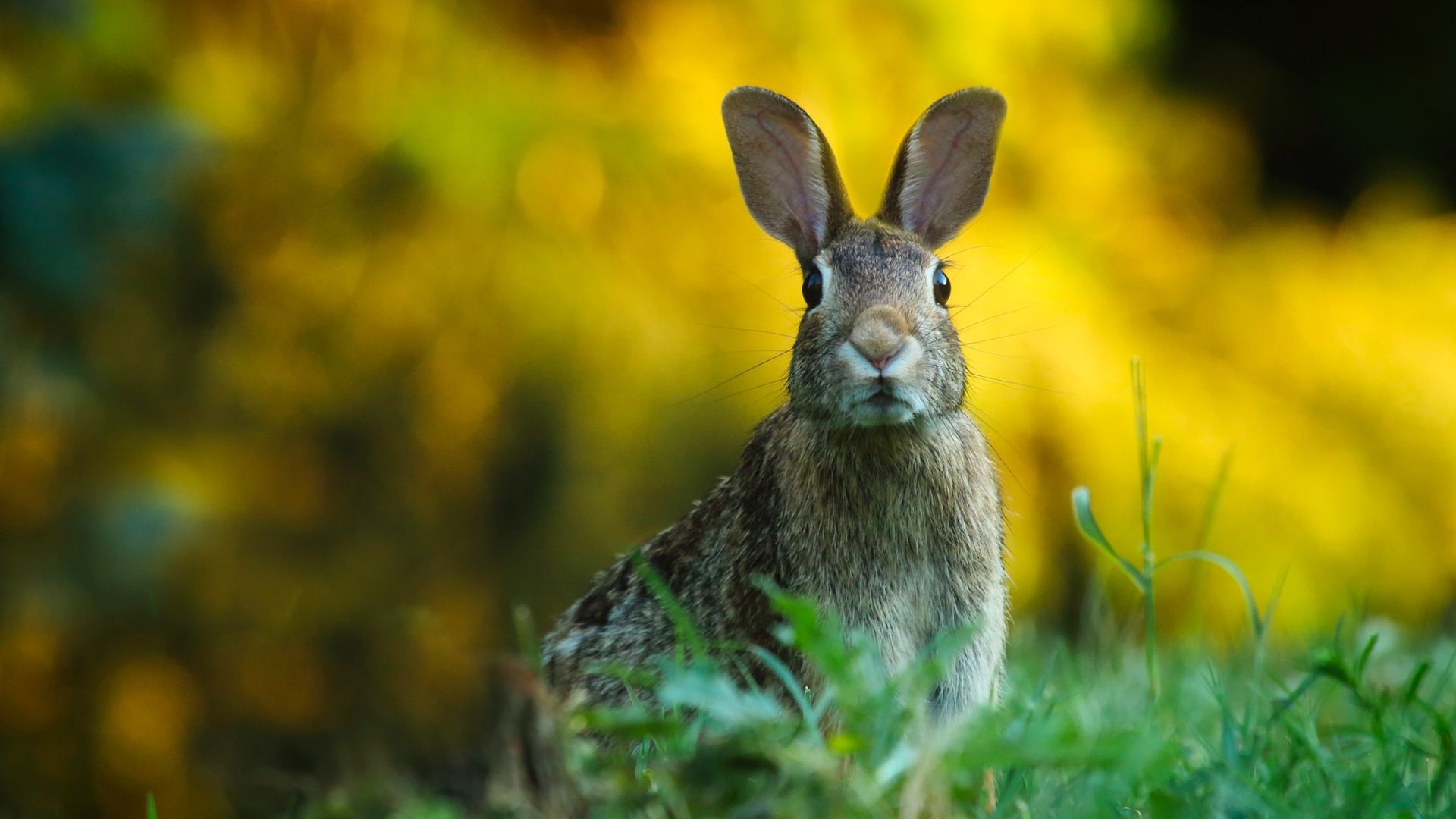
At first, I thought the little bunny hopping through my yard was adorable—until I woke up to chewed stems and vanished lettuce. If you’ve ever felt that heartbreak, you’re not alone. These garden-loving fluffballs can do serious damage in no time.
They might look harmless, but rabbits have big appetites and zero guilt. Once they find a favorite snack in your garden, they’ll keep coming back like it’s an all-you-can-eat buffet. I’ve had to learn the hard way how determined they can be.
Thankfully, keeping them out doesn’t have to cost a fortune or involve harsh measures. With a few smart tricks—like using scent-based repellents, fencing off key plants, and planting rabbit-resistant favorites—you can take back control of your garden, one nibble at a time.
1. Sprinkle Hair Clippings Around Plants
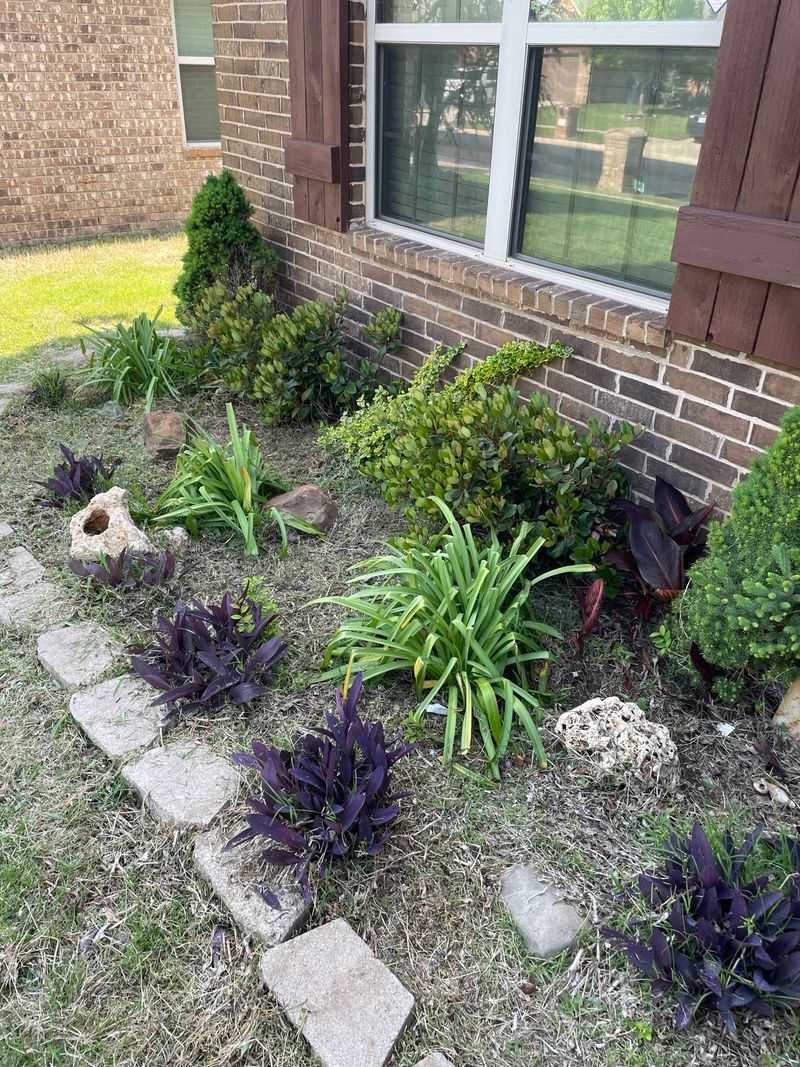
Human hair from your latest trim works surprisingly well as a rabbit deterrent. The scent of humans naturally frightens rabbits, making them think twice before hopping into your garden.
Collect hair from your home haircuts or ask your local salon for their sweepings. Simply scatter it around your garden beds and refresh it every couple of weeks, especially after rain.
Many gardeners swear by this method because it costs absolutely nothing and uses something you’d normally throw away.
2. Plant Strong-Smelling Herbs As Barriers
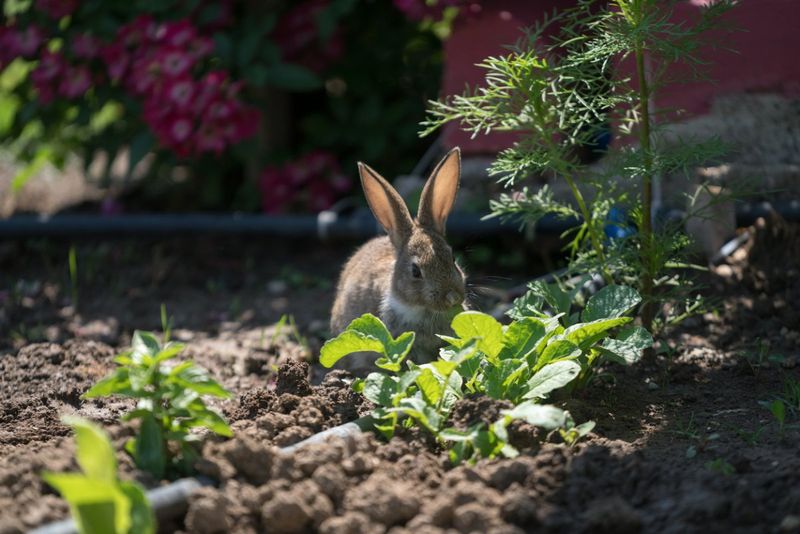
Rabbits hate certain strong scents that we humans find pleasant. Herbs like mint, oregano, sage, and lavender naturally repel these garden invaders while adding beauty and usefulness to your garden.
Plant these aromatic herbs around the perimeter of your vegetable beds or intersperse them between vulnerable plants. The bonus? You’ll have fresh herbs for cooking while your garden stays protected.
I planted mint around my lettuce bed last year and noticed a significant drop in rabbit damage – just be careful with mint as it spreads quickly!
3. Create Crushed Eggshell Barriers
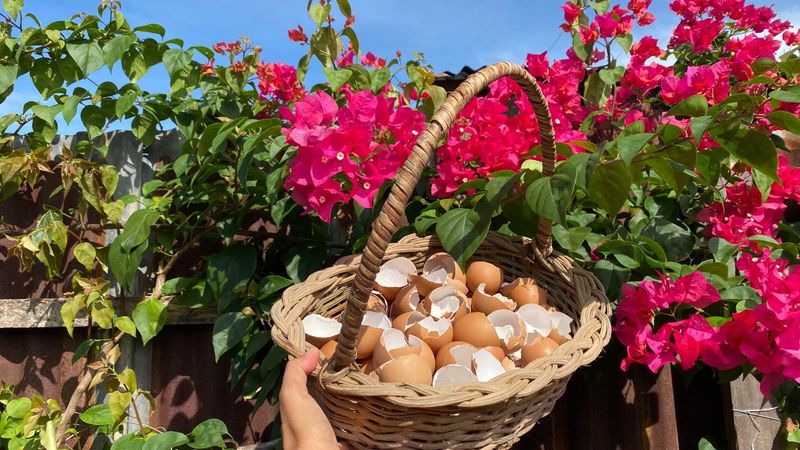
Those breakfast eggshells have a second life as rabbit repellents. Rabbits dislike walking on sharp, crunchy surfaces, making crushed eggshells an excellent deterrent around your precious plants.
Save shells from cooking, rinse them out, and let them dry completely. Crush them into small, jagged pieces and sprinkle liberally around plants rabbits typically target.
The sharp texture bothers their sensitive paws, and as a bonus, the decomposing shells add calcium to your soil over time – a true win-win solution!
4. Build Simple Chicken Wire Cloches
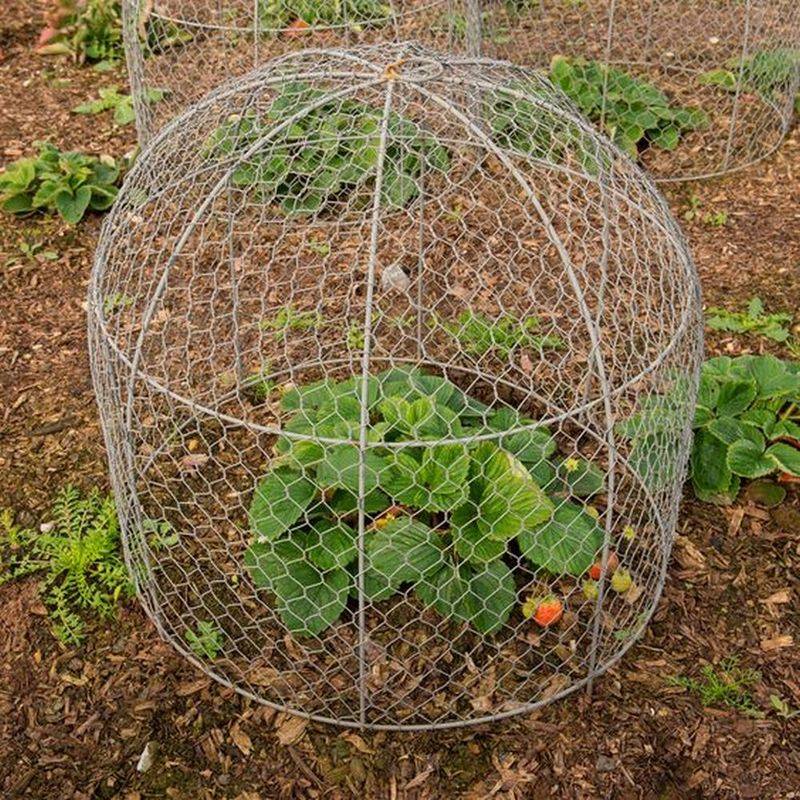
Protecting individual plants doesn’t require fancy equipment – just some chicken wire and basic crafting skills. These homemade cloches create physical barriers that rabbits simply can’t breach.
Cut chicken wire into squares, form them into dome shapes, and secure the edges with twist ties. Place these protective cages over young plants or particularly vulnerable species.
The wire mesh allows sunlight and rain to reach your plants while keeping hungry rabbits at bay. Remove them once plants mature enough to withstand minor nibbling.
5. Spray Diluted Hot Sauce Solution
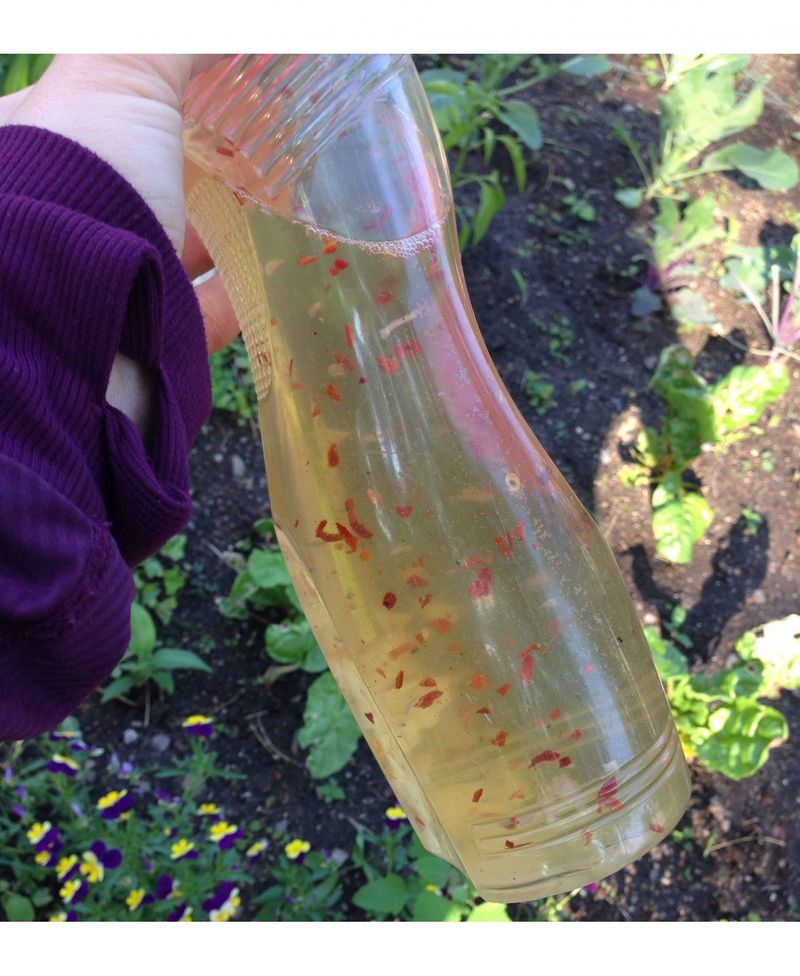
Rabbits absolutely detest spicy flavors, making hot sauce an effective and inexpensive repellent. The capsaicin in hot peppers irritates their sensitive noses and taste buds without causing lasting harm.
Mix a few tablespoons of hot sauce with a quart of water and a drop of dish soap to help it stick. Spray this mixture on plant leaves, reapplying after rain or every few days.
Your vegetables might smell slightly spicy to humans, but a quick rinse before eating removes any residue. The rabbits, however, will quickly learn to avoid your spicy garden buffet!
6. Install Reflective Objects That Move
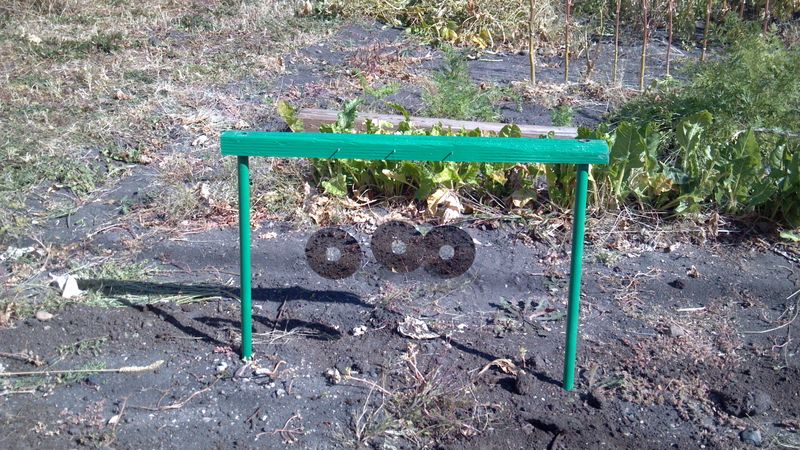
Rabbits startle easily, making reflective, moving objects effective deterrents. Old CDs, aluminum pie plates, or strips of reflective tape create unpredictable flashes of light that confuse and frighten these cautious creatures.
Hang these reflective items from strings tied to stakes or tree branches around your garden. The slightest breeze will create movement and light flashes that keep rabbits on edge.
Garden centers sell commercial versions of this trick, but why spend money when household items work just as well? The random light patterns make rabbits too nervous to settle down for a meal.
7. Use Coffee Grounds As Mulch
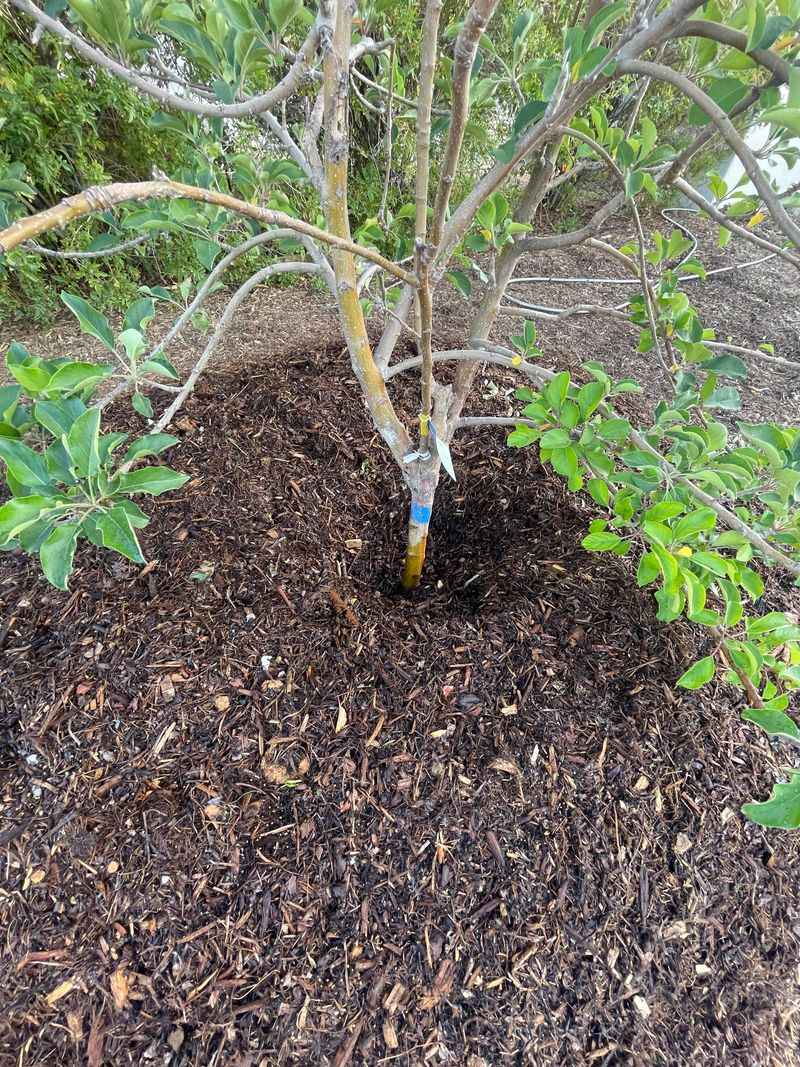
Morning coffee drinkers rejoice – those used grounds make excellent rabbit repellent! The strong smell overwhelms rabbits’ sensitive noses, making your garden far less appealing to these picky visitors.
Collect used coffee grounds and sprinkle them generously around vulnerable plants or along garden borders. Many coffee shops give away used grounds for free if you don’t generate enough at home.
As an added benefit, coffee grounds slowly decompose and add nitrogen to your soil, improving its quality while protecting your plants from hungry bunnies.
8. Sprinkle Blood Meal Fertilizer
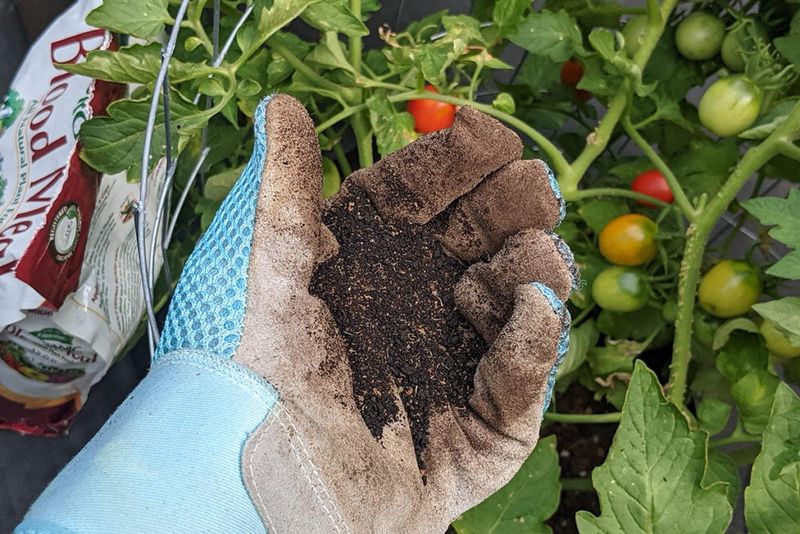
Blood meal serves double duty as both a nitrogen-rich fertilizer and an effective rabbit repellent. The scent signals danger to rabbits’ instincts, convincing them predators are nearby.
Apply a thin layer around your garden’s perimeter and between rows of vulnerable plants. Reapplication every few weeks or after heavy rain keeps the deterrent effect strong.
While relatively inexpensive at garden centers, blood meal’s dual purpose as fertilizer makes it especially economical. Just be careful not to over-apply, as too much nitrogen can burn plants.
9. Create Chicken Wire Underground Barriers
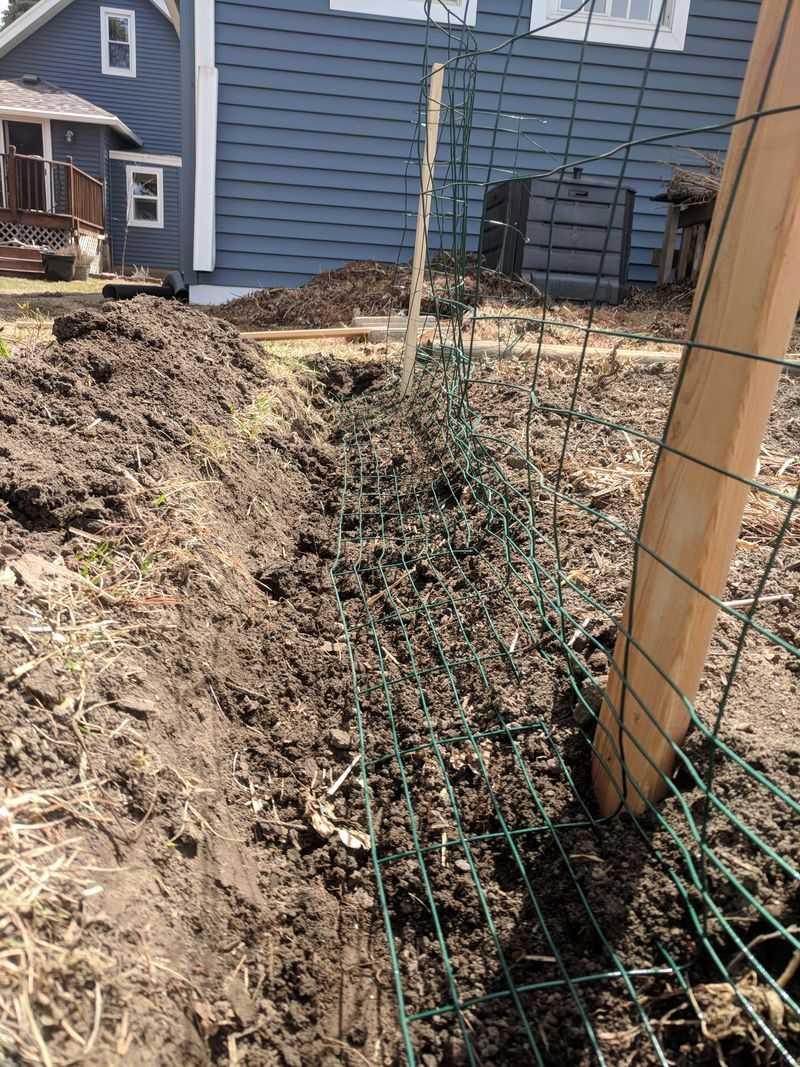
Rabbits don’t just hop into gardens – they often dig underneath fences too. A simple underground barrier stops this sneaky behavior before it starts.
Dig a trench about 6-8 inches deep around your garden area. Place chicken wire in the trench with several inches extending above ground, then backfill with soil.
The buried portion prevents digging while the above-ground section blocks entry. This one-time installation provides years of protection against even the most determined rabbit invaders.
10. Plant Rabbit-Resistant Flowers
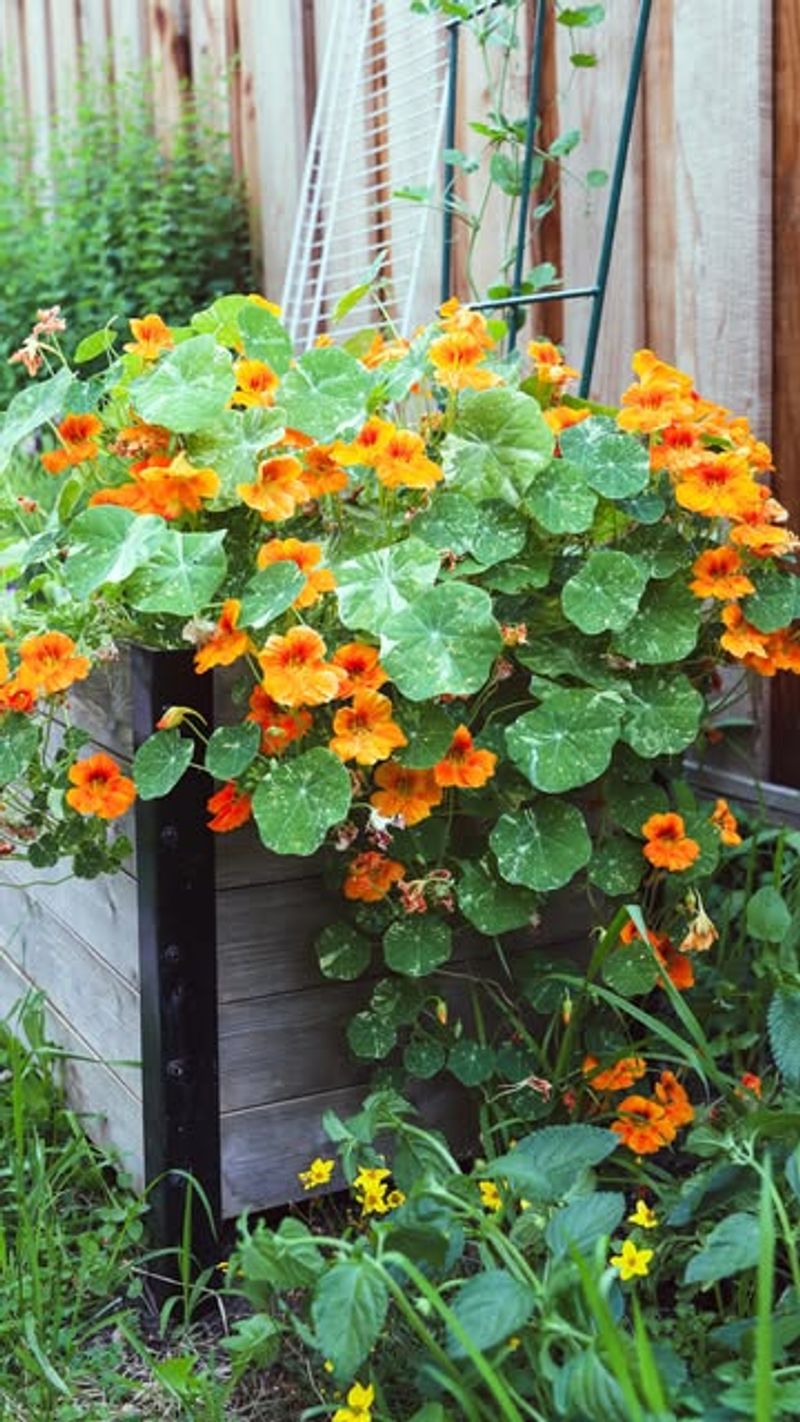
Strategic planting creates natural barriers that rabbits typically avoid. Flowers like marigolds, snapdragons, salvias, and daffodils contain compounds or textures rabbits find unappealing.
Border your vegetable garden with these rabbit-resistant species or intersperse them throughout your planting beds. Their bright colors enhance your garden’s beauty while their natural properties keep rabbits at bay.
My neighbor struggled with rabbits until planting a marigold border – now she rarely sees rabbit damage. The flowers’ strong scent masks the appealing smell of tastier plants nearby.
11. Spray Garlic-Pepper Tea Solution
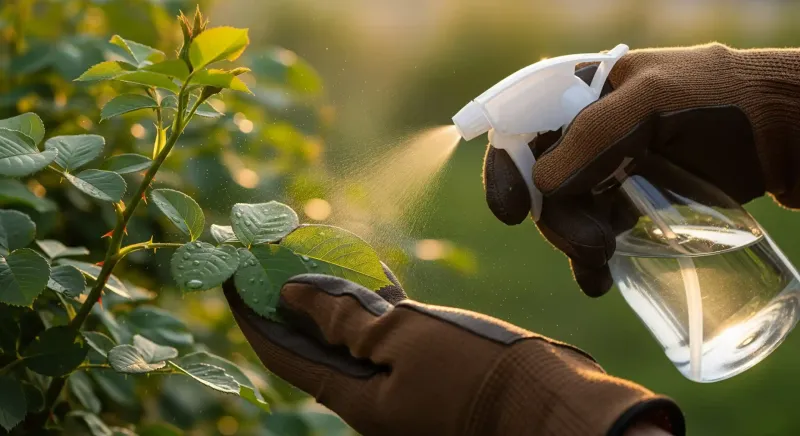
Homemade garlic-pepper spray creates an invisible barrier that rabbits find deeply offensive. The pungent combination overwhelms their sensitive noses and taste buds, sending them hopping in the opposite direction.
Blend several garlic cloves and hot peppers with water, strain, then add a drop of dish soap to help it stick to plants. Spray vulnerable plants every few days and after rainfall.
Unlike commercial repellents, this solution costs pennies to make and contains no harmful chemicals – just natural ingredients that rabbits naturally avoid.
12. Create Thorny Brush Piles As Barriers
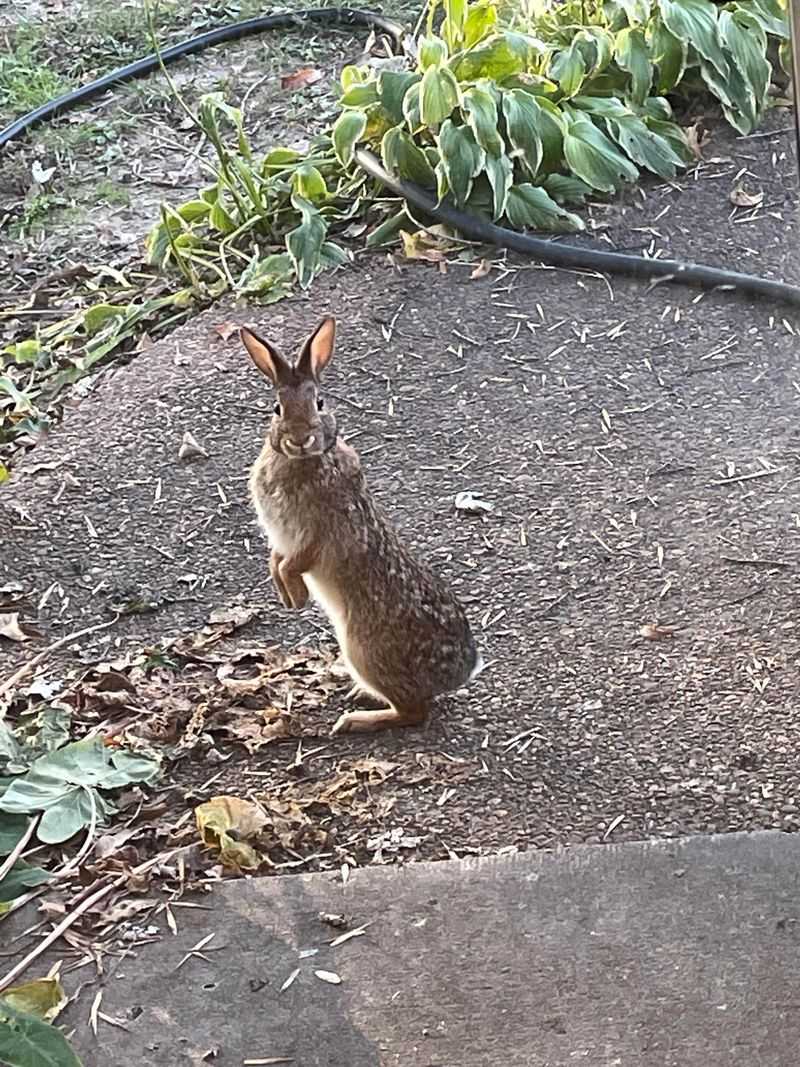
Tree trimmings and thorny brush create excellent free barriers that rabbits won’t push through. Pruned rose branches, blackberry canes, or holly trimmings form natural barricades that protect vulnerable plants.
Arrange these thorny trimmings around garden beds or along fence lines where rabbits typically enter. The sharp thorns discourage rabbits from pushing through or jumping over.
This method recycles yard waste while creating effective protection. The brush gradually decomposes, requiring occasional replenishment, but costs absolutely nothing to implement.
13. Apply Predator Urine Around Perimeter
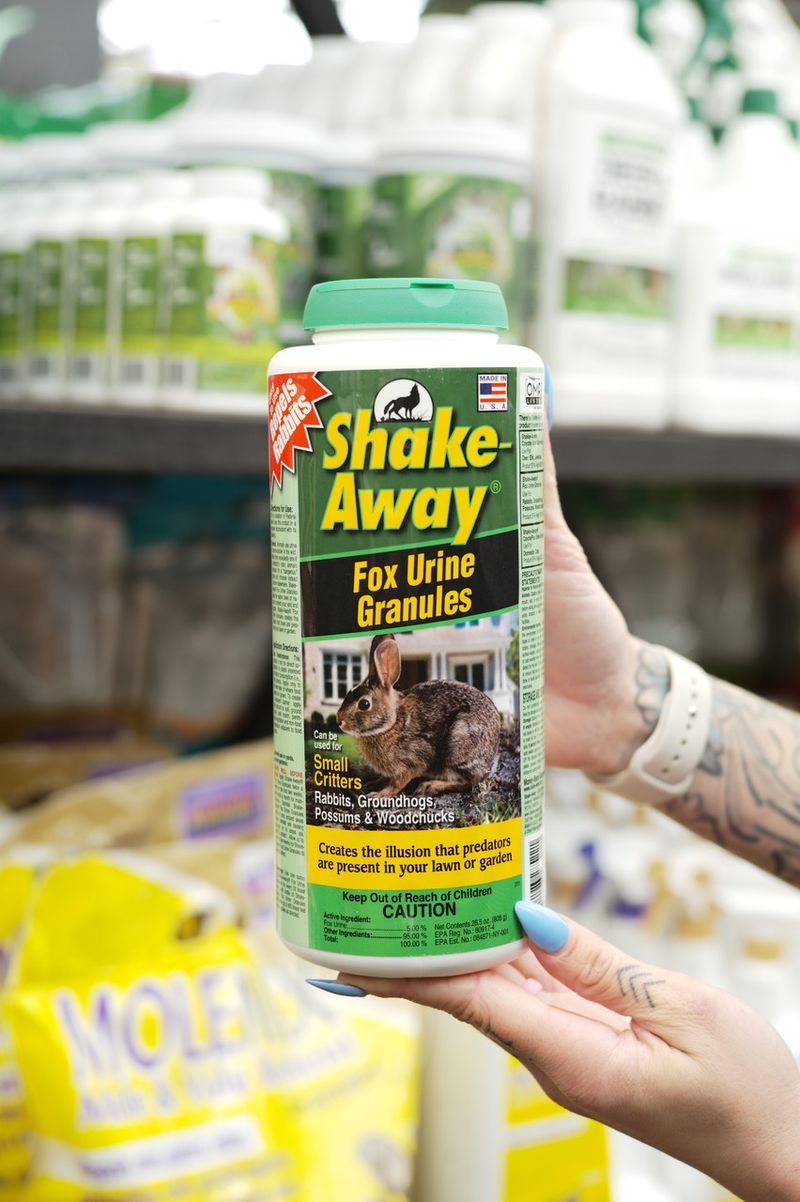
Rabbits survive by avoiding predators, making predator urine an effective psychological deterrent. The scent triggers rabbits’ natural fear response, convincing them your garden is unsafe territory.
Commercial predator urine (typically fox or coyote) comes in granules or liquid form. Sprinkle or spray it around your garden’s perimeter, refreshing it every couple of weeks and after rainfall.
While it sounds unusual, many gardeners find this method remarkably effective. The cost is moderate, but a little goes a long way in creating a no-rabbit zone.
14. Make Noise-Making Wind Chimes
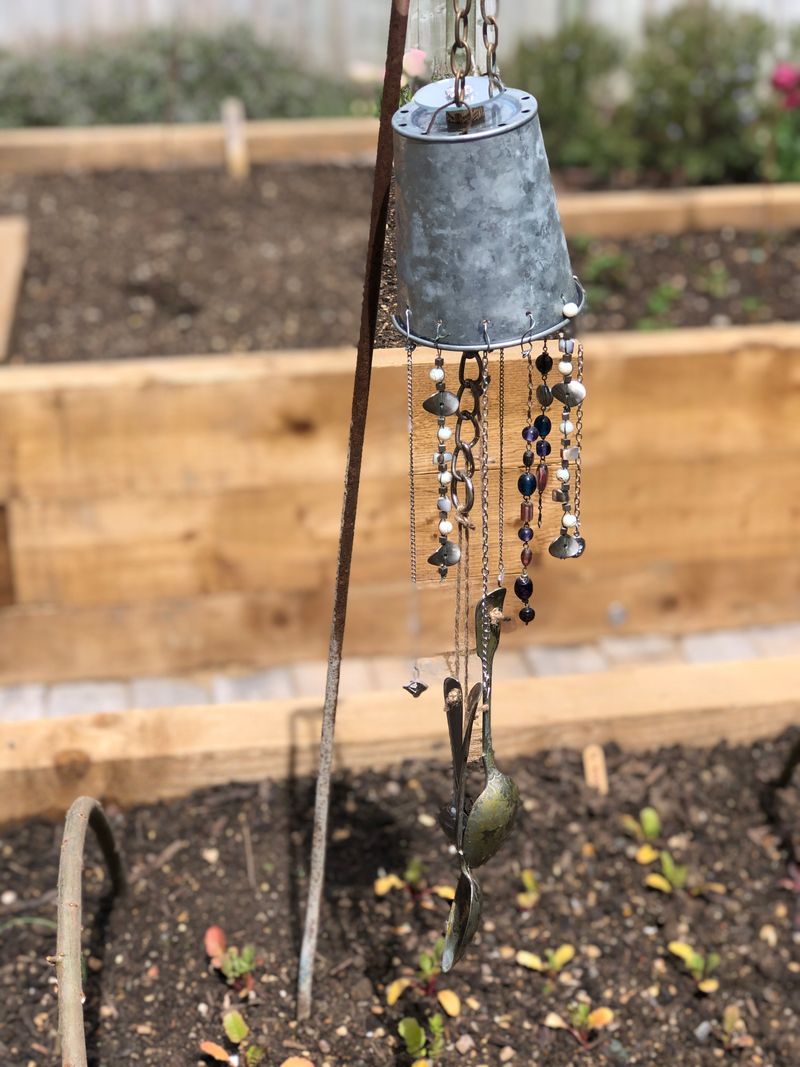
Rabbits prefer quiet feeding grounds where they can listen for approaching predators. Introducing unpredictable sounds into your garden makes them too nervous to settle in for a meal.
Create simple wind chimes from old keys, metal bottle caps, or aluminum cans. Hang these around your garden where even slight breezes will create gentle but unpredictable noise.
The sounds don’t need to be loud to be effective – just consistent enough that rabbits can’t relax. This method costs virtually nothing if you use recycled materials from around your home.
15. Construct Simple Plastic Bottle Barriers
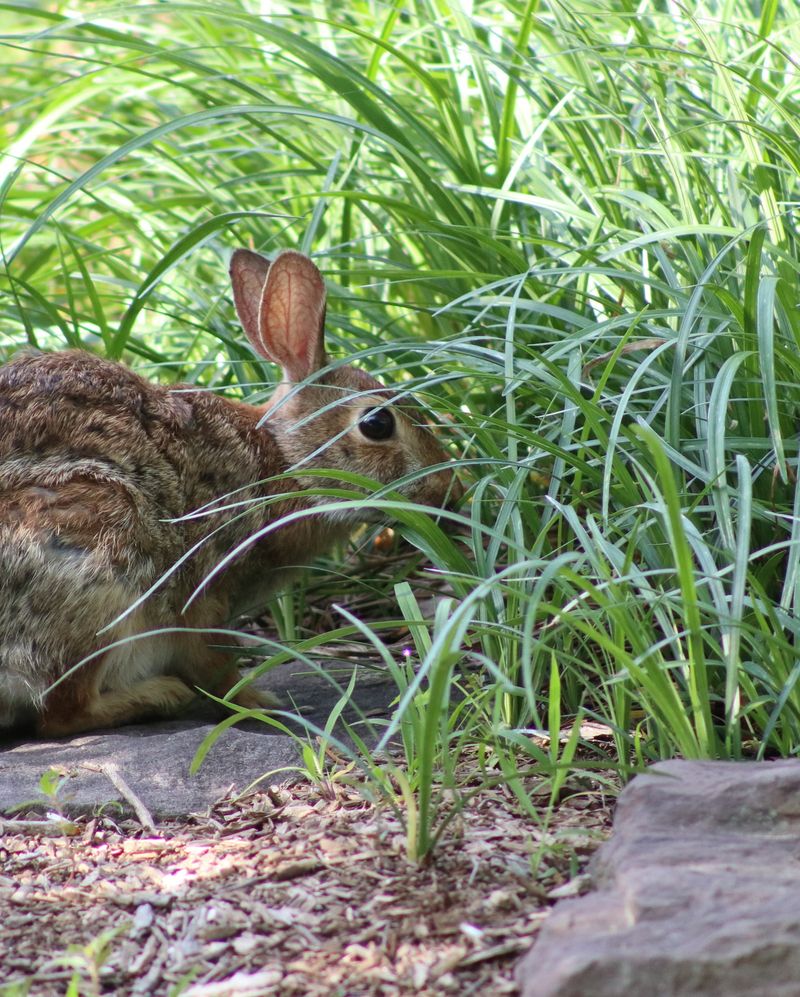
Empty plastic bottles transform into effective rabbit barriers with just a few simple cuts. The smooth surface prevents climbing while creating an obstacle rabbits prefer to avoid.
Remove the tops and bottoms from 2-liter bottles, then cut down one side to create a flexible plastic sheet. Place these around young plants, pushing the bottom edge slightly into the soil.
The clear plastic still allows sunlight to reach plants while blocking rabbit access. As plants grow taller, simply remove the barriers and reuse them elsewhere in the garden.
16. Utilize Pet Hair Around Plants
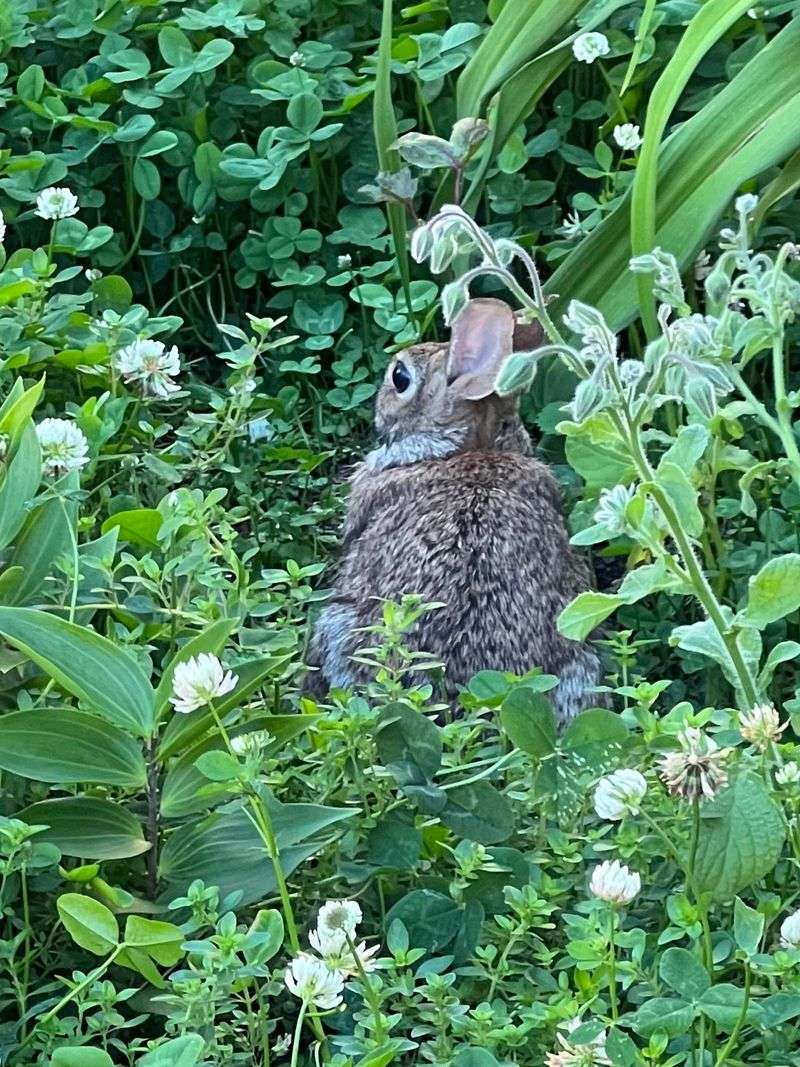
Your furry friends can help protect your garden without even stepping outside. Hair from dogs or cats signals to rabbits that predators are nearby, triggering their natural avoidance instincts.
Collect hair from pet brushes or grooming sessions and scatter it around vulnerable plants or garden perimeters. The scent remains effective for several days, especially in dry weather.
Regular brushing provides a constant supply of this free deterrent. Unlike some chemical options, pet hair is completely safe for your garden and actually adds tiny amounts of nutrients as it decomposes.
17. Scatter Citrus Peels Throughout Garden

Rabbits strongly dislike the potent oils found in citrus peels, making your breakfast orange a powerful garden protector. The sharp citrus scent overwhelms their sensitive noses and signals them to stay away.
Save peels from oranges, lemons, grapefruits, and limes. Scatter fresh peels around vulnerable plants or grind dried peels into a coarse powder for longer-lasting protection.
Replace the peels weekly or when their scent fades. This zero-cost solution recycles kitchen waste while creating an invisible barrier that rabbits prefer not to cross.
18. Apply Irish Spring Soap Shavings
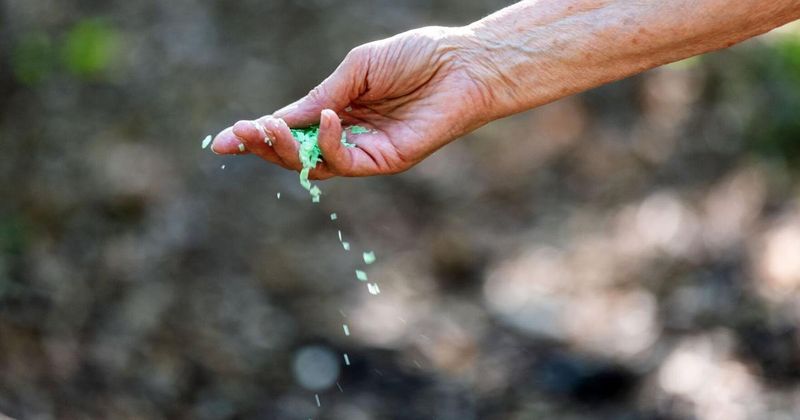
Irish Spring soap’s strong scent has gained a reputation among gardeners as an effective rabbit deterrent. The potent fragrance masks the appealing smell of your plants and irritates rabbits’ sensitive noses.
Grate a bar of soap using a cheese grater, then sprinkle the shavings around your garden beds and plants. Rain will slowly dissolve the soap, gradually releasing its scent into the surrounding area.
One bar costs about a dollar and protects a substantial garden area. Replace the shavings monthly or after heavy rainfall to maintain the protective barrier.


